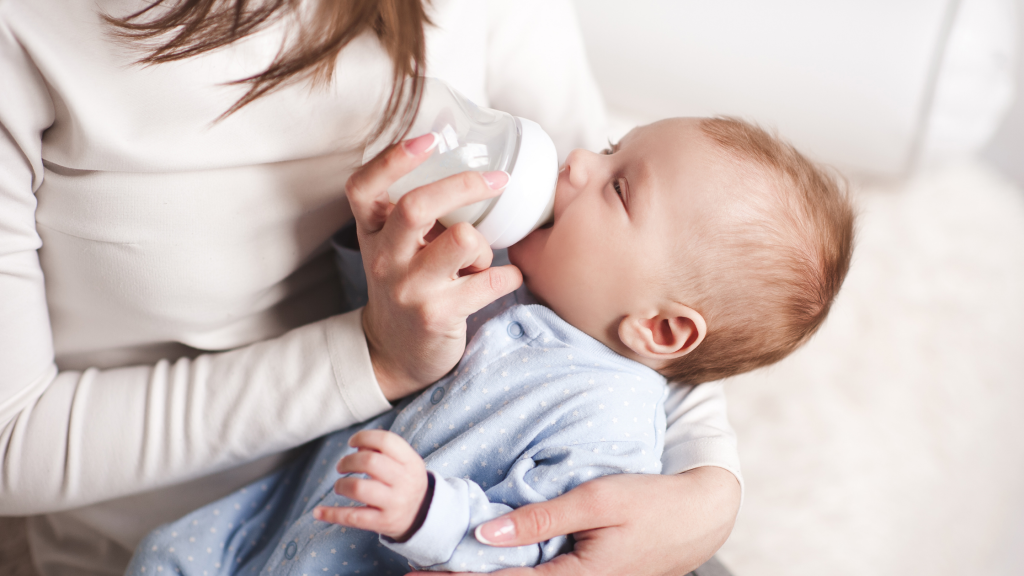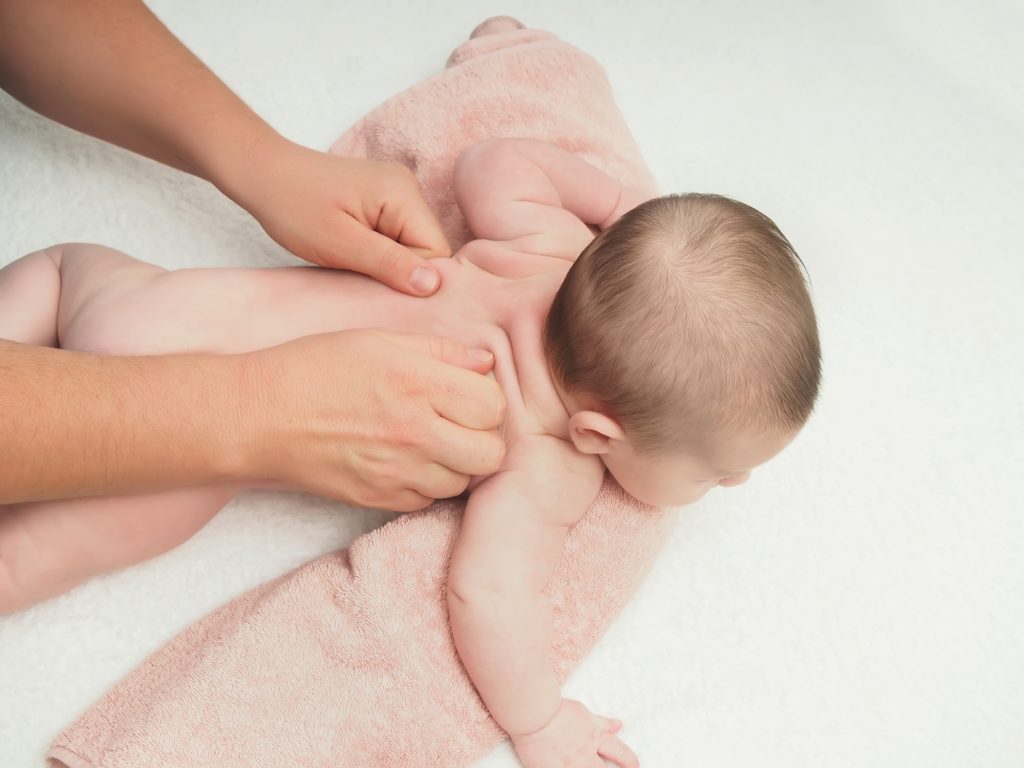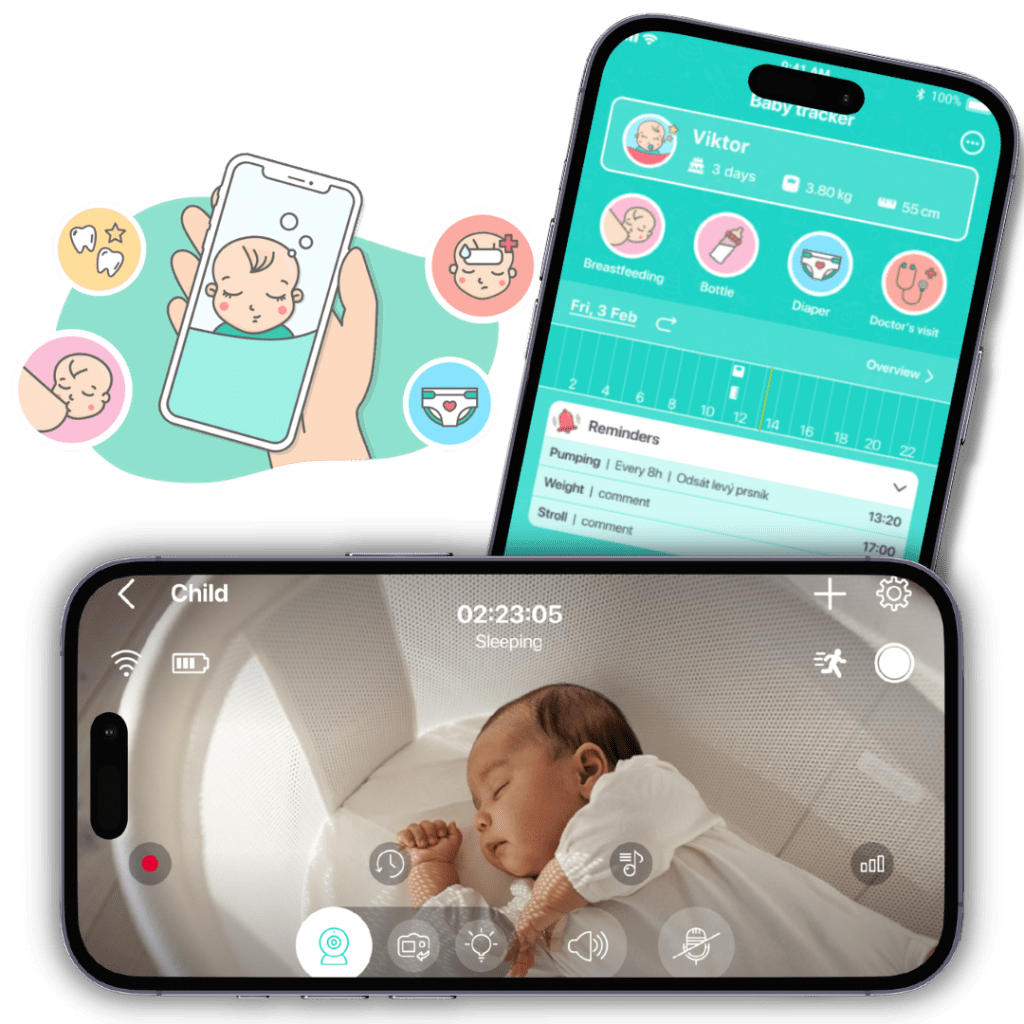
8 Tips How To Prevent Baby Hiccups
- Created:
27. 4. 2021 - Updated:
11. 12. 2023
The 8 Tips How To Prevent Baby Hiccups
1. Way You Feed
2. Don’t Nurse When …
3. Feeding Position
4. Burping Between Feeding
5. Suction During Nursing
6. The Way You Hold The Bottle
7. Massage Baby’s Back
8. Look for Signs of Colic
Way You Feed
When a hungry baby takes in too much milk too fast, that can cause the stomach to distend, which can cause hiccups. Instead of one big feeding, feed baby half as much, but twice as often. That way your baby can digest her milk more slowly, avoid a too-full tummy and alleviate gas pressure that can trigger hiccups.
TIP N.1: How you offer a bottle can be more important than what’s inside
Don’t Nurse When…
If your baby is getting cranky or fussy during a feeding, there’s a chance baby will swallow air, which can cause hiccups. Instead of continuing to breast feed or bottle-feed a cranky baby, stop the feeding for a little while and see if you can calm your baby down. The fussing and the nursing can lead to hiccups and spitting up, so taking a sort break may help baby relax and swallow less air.
Feeding Position
Sitting baby upright during feedings can ease case hiccups. This position allows gas to rise and pass naturally, easing a distended tummy situation. More upright mean hold baby at a 30-45 degree angle instead of laying down in the crook of your elbow. You can also subtly shift baby during feeding breaks to see if that will stop a bout with hiccups.
TIP N.2: 11 different breastfeeding positions

Burping Between Feeding
An easy way to slow down baby’s milk intake is to burp baby in the middle of a feeding. If you’re breastfeeding, burp baby when you switch breasts. If you bottle-feed, burp baby when is halfway done with the bottle. This is a great opportunity to sit baby upright and gently rub or pat baby’s back, or lay head on your shoulder and give the baby a chance to pass air bubbles. The less air bubbles, the less likely your baby is to get hiccups.
TIP N.3: A Guide to Burping Baby
Suction During Nursing
If you’re breastfeeding your baby, make sure the suction is correct. If not, baby may be swallowing extra air during feeding. Most breastfed babies don’t make a lot of gurgling and gulping sounds. If your baby is doing this or seems to get fussy, try to latch baby on again, so you have a tight seal on your nipple. And if you’re a new mommy, don’t worry! Breastfeeding is not always easy during the first few weeks, but you’ll get the hang of it. And so will your baby!
The Way You Hold The Bottle
If you bottle-feed your baby, tilt the bottle so the milk completely fills the nipple – the less air that collects at the bottom of the bottle, the better. Make sure your baby’s head is slightly elevated. If you hold the head at a 45-degree angle, baby should be able to see your face. Also, make sure you are using good nipples on the bottle. Hand-washing bottle nipples instead of putting them in the dishwasher can make them last longer.
TIP N.4: Ultimate Guide to How to Bottle-Feed a Baby

Massage Baby’s Back
If your baby has hiccups that won’t subside within a few minutes, you can place baby on the ground and let move around on tummy. Sometimes the pressure will immediately stop hiccups. You can also gently massage your baby’s back to help the process.
TIP N.5: Baby’s massages
Look for Signs of Colic
Colicky babies who suffer from tummy pain and spitting up may have reflux that causes hiccups. If your baby seems to have hiccups all of the time, this could be the culprit. This is when you can add products like Little Remedies Gripe Water or Little Remedies Gas Relief Drops to your feeding routine. These products work in minutes to soothe colic symptoms, making your baby much more comfortable and much happier during feedings.
Final Tip: Annie Baby Monitor – Your Ally in Preventing Baby Hiccups
But if you really want to take things to the next level and create a hiccup-free environment, then you should definitely seek for helper.
With Annie Baby Monitor helpful baby tracker feature, you can keep track of your baby’s feeding schedules and even identify any foods that might be causing hiccups.
By using a baby tracker, you’ll better understand your baby’s habits, which can help prevent hiccups.







